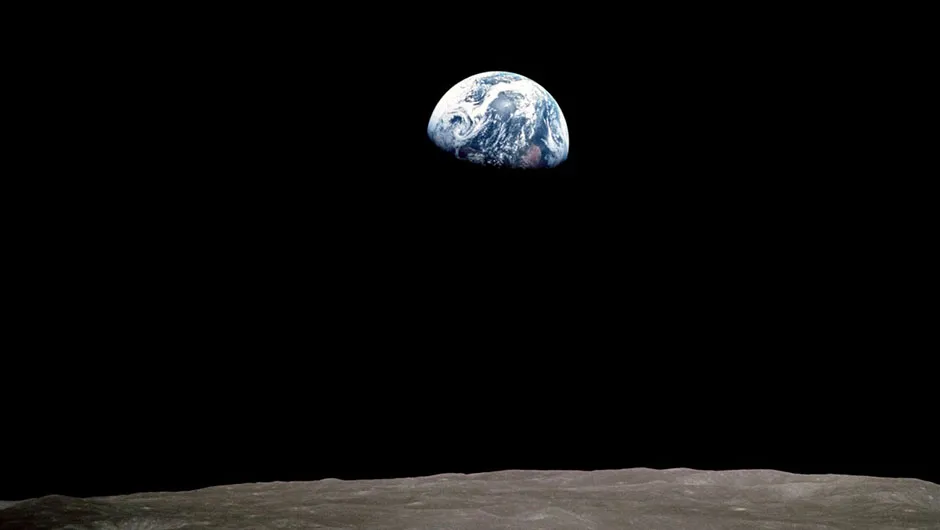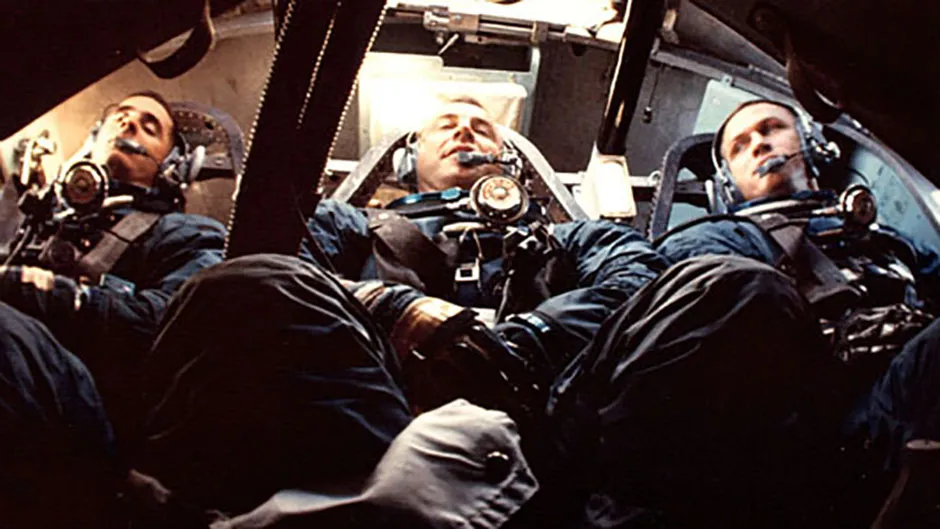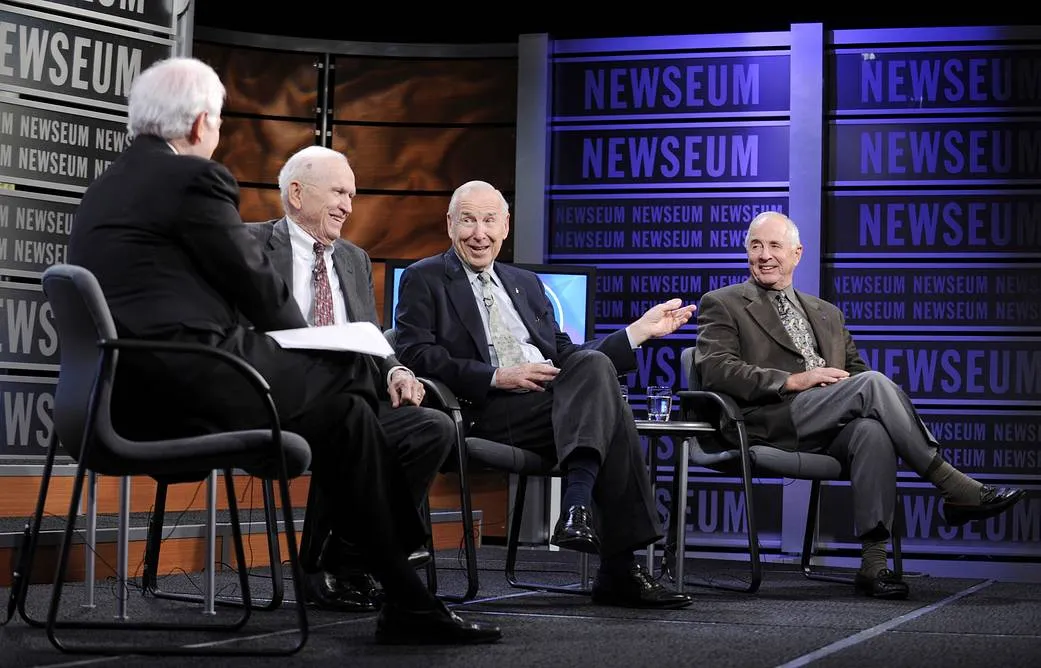Apollo 8, the first crewed mission to circle the Moon, is best remembered for its Earthrise photo, and for the Christmas message its crew broadcast to the world from orbit on Christmas Eve, 1968.
Apollo 8's Commander, Frank Borman, spoke to us from his home in Billings, Montana about how, for him, escaping Earth's gravitational pull for the first time was much more about winning the Cold War than space exploration.
Even before launch, you knew that Apollo 8 would be your last flight with NASA. Why?
I was there to participate in the Cold War battle with the Soviets.I was confident that Apollo 8 would succeed, and that the Soviets were beat.There was no way on God's green Earth that I was going to go back to the moon to pick up rocks.
Jim (Lovell) and Bill (Anders) were different sorts. Bill was interested in geology and Jim had always been interested in space and rockets.I was more interested in airplanes than spacecraft.
How do you think Apollo 8 will be remembered?
It will probably be remembered as much for Bill's picture as anything because it shows the fragility of our Earth, the beauty of the Earth, and just how so insignificantly small we are in the Universe.
It was the beginning of the realization that we need to take care of it.

Why was Apollo 8 upgraded from a test mission in low Earth orbit to a moon mission?
When I was told that Apollo 8 was going to go to the moon the first thing they mentioned was that the CIA has instructed NASA that the Russians would send a man around the moon by the end of the year.
That had a lot to do with us going in December.There never would have been an American lunar program without competition with the Soviets.
Was Apollo 8 a risky mission? The Saturn V rocket had only been tested twice before, and there had been problems.
It was a risk, but every flight was a risk.When you get up in the morning you take a risk! It was a worthwhile risk for the gains that we got.
There was pressure to meet the goals, but during my eight years at NASA I never once saw safety compromised in the interests of schedules.
When they [the rocket team] said they were ready, I believed them – they were really confident people.
You've said that Apollo 8 worked perfectly, but didn't you have a problem with the navigation system on the way home?
Technically it wasn't difficult at all because the machinery worked perfectly.On the way back we did have a problem, not with the navigation system, it was a problem with Lovell – he screwed-up and hit the wrong button!
It put the spacecraft back in the position it was at launch. It tumbled our gyros and he had to reset them using the stars, just like the old shipmasters used to do.
I'm glad he did it because he was much better at it than I was, but we had all been to planetariums, so I was confident I could do it.
We were very well versed in the sky and in the stars, but I didn't take up astronomy after.I took up airplanes.

Apollo 8 wasn't the first time you and Jim Lovell had been to space. What was the highlight of your Gemini 7 mission in 1965?
It was a long, gruelling human endurance flight – no-one had been in zero-G that long.So the highlight was reentry!
Some of the other missions were going to be much longer than Apollo 8, and there were certain circumstances where you would want to have at least the availability of 14 days.
We spent two weeks together in a volume smaller than the front seat of a Volkswagen Beetle, and in a situation like you either end-up best friends or bitter enemies.We came out friends. But I never asked for a particular crew mate.
I never angled for a flight, I just took what was coming.
Did you sleep much while you were in orbit around the moon?
We slept some, but not much.Towards the end I had trouble getting Jim and Bill – particularly Bill – to get some sleep.We were pretty rung-out.
Not only the 20 hours around the Moon, but going to the Moon. It was a high adrenalin time.
How many times did you see Earthrise while you orbited the moon?
We saw it more than twice, but during the first two orbits we never seven saw the Earth.It was only coming over on the seventh or eighth orbit that we could see it, when the spacecraft was positioned so that we could see it.
Most of the time we were looking at the lunar surface, looking for landing sites and geological features.Bill was taking a lot pictures of the Moon, not one had been allocated for Earth.

Do you have a copy of the Earthrise photo?
FB: I don't have it hanging up in my house.I have that Earthrise in my mind, but I don't have a bunch of NASA stuff in my house.
I have a hangar where I keep a little airplane along with some of my old NASA stuff, but most of my memorabilia I gave away to the Experimental Aircraft Association's Aviation Museum in Wisconsin.
It's a worthy cause and a wonderful museum.
Should NASA go back to the Moon? Or Mars?
[Returning to the Moon] makes a lot of sense.NASA should go back and establish a permanent small scientific community like there is at the South Pole.The idea of going to Mars and colonising it is bumf. I don't think they'll ever colonise Mars.
I believe that it will be a monumental task to put human beings on Mars, and I don't think they'll ever be a colony there.
